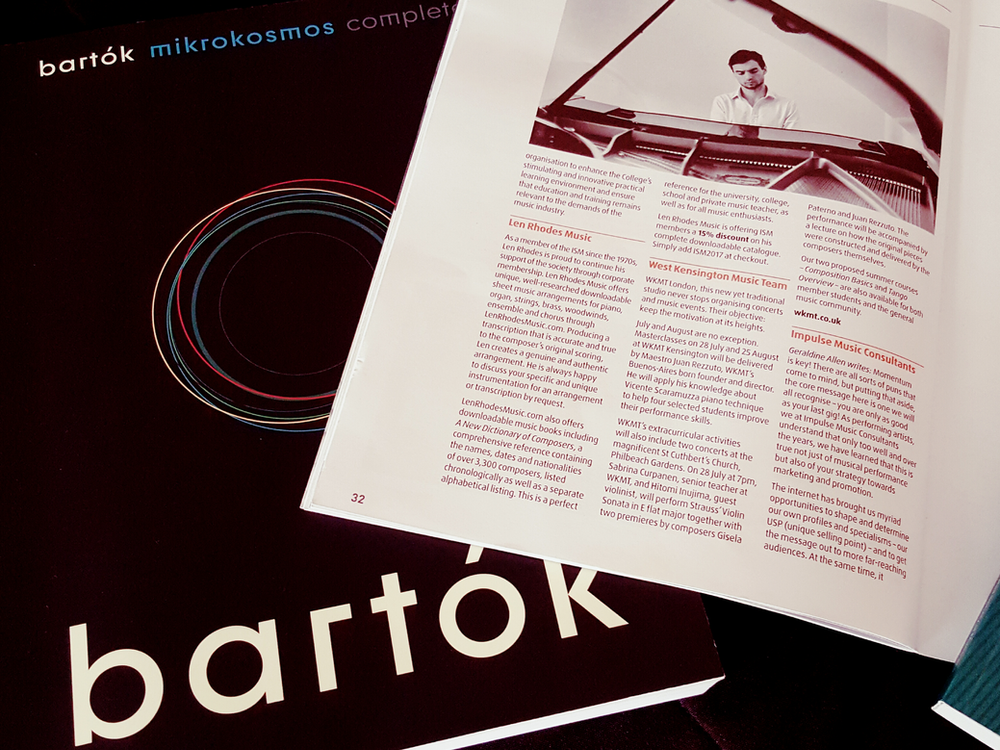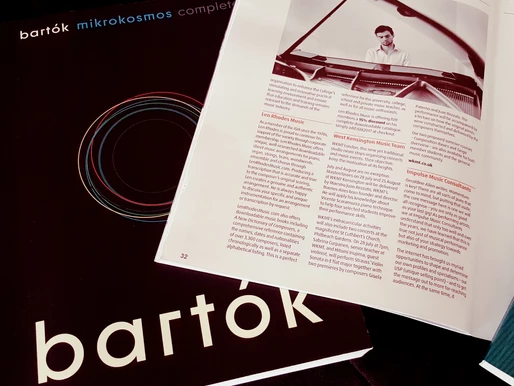Uncategorized
How to improve sight reading skills in children
How to improve sight reading skills in children
Sight-reading piano music

Following last month pedagogical meeting about the new beginners method created by Gisela Paterno, I decided to suggest some new materials which might be also useful for improving technique and Sight reading skills for children beginners.
Currently, WKMT is using Bartók “Mikrokosmos” to help our students improving their sight-reading piano skills, but it might be a challenge for the teachers to introduce it to children.
During my teaching experience, I have been using a book series called “Improve your sight reading” by Paul Harris. They have been very successful amongst my piano students because each book starting from Grade 1 to 8 offers valid material to be successful in the Sight reading Test. In my opinion, this one might work as a possible alternative to Mikrokosmos with the same benefits results.
There are between 8-9 stages in each book which gradually increase in difficulties plus there are rhythmical, melodical and harmonical activities:
– As for the rhytmical, I used to clap or tap the rhythm with my students (sometimes me beating the right hand and the other way round until they can do it independently by themselves with both hands).
– As for the melodical aspect, there are useful questions which need to be answered before starting every exercises such as looking for repeated melodical patterns, how to deliver the character of the piece, the meaning of musical signs such as accents, staccati related to the piece under examination. Each exercise has a title which helps the students to picture the character and the sound of the piece.
– As for the harmonic aspects, each stage is based on one key which is very helpful for the student to memorise the key signature and get used to the sound of it.
This series of book also include the Sight reading Duets which are fun to play plus they make the students carry on playing even if they did a wrong note or forgot accidentals because the second player (usually teachers) will keep on going.
My other suggestion to help little players to learn how to improve sight-reading for piano is a books series called “A dozen a day” by Edna Bae Burnam. I think they are brilliant books as they help improving piano technique in a very fun and imaginative way. In each book there are 5 groups with 12 exercises each which meant to be played daily. Every exercise has a title related to daily children activity like “walking”, “running”, “Skipping,” “Skipping Rope”, “Climbing a ladder”, “jumping”, “hopping”, “cartwheels” accompanied by simple and effective drawings which help the students playing the exercise by relating it to a common daily life action. I believe they are a great way to start each Piano practise session for Children and perhaps less intimidating than Czerny or Bayer.
#sightreading #wkmt #SabrinaCurpanen #pianolessonsforbeginners #pianolessonslondon


Pingback: Piano Sight-reading techniques